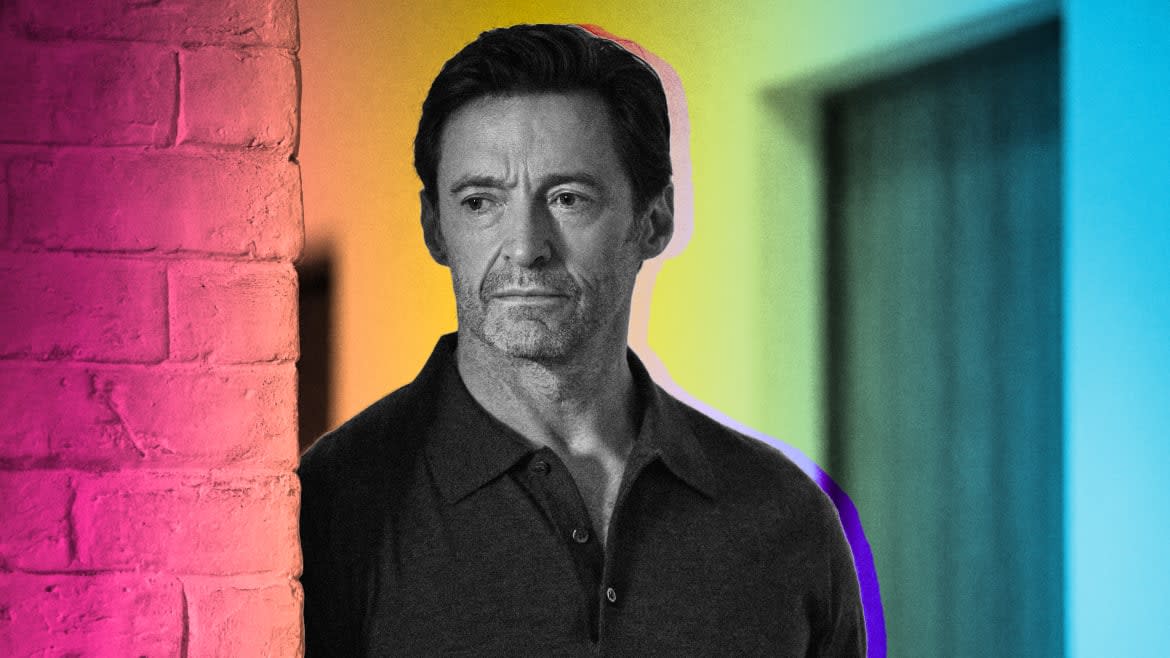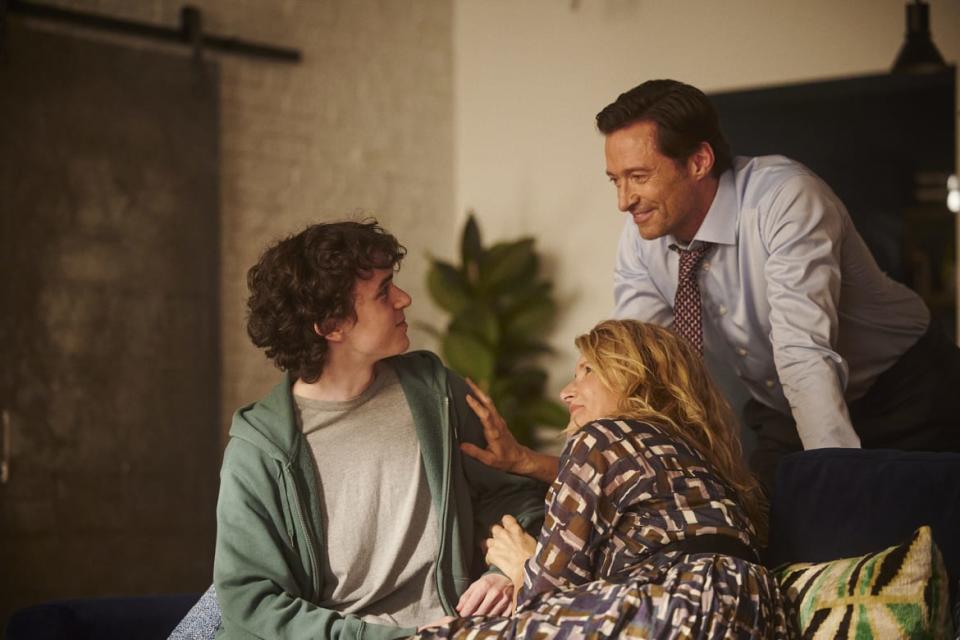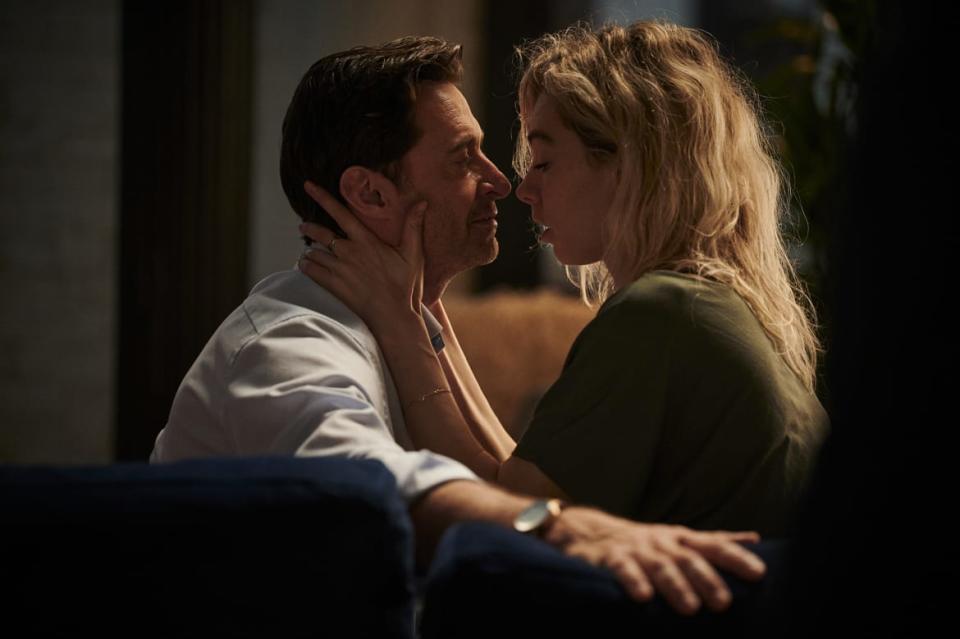Hugh Jackman’s ‘The Son’ Is a Shocking Misfire of a Film

One of the easiest ways for a horror movie to generate suspense is by making its characters wholly ignorant about the threat they face—so that, for example, they’re unprepared to battle a vampire because they don’t know what one is, much less how to kill it.
It’s a cheap storytelling shortcut, and it’s one that’s doggedly employed by The Son, Florian Zeller’s follow-up to last year’s The Father, whose entire domestic drama hinges on the abject cluelessness of its parental protagonists. Only tragedy can ensue when no one knows about depression (its symptoms, its causes, its treatments), and ensue it most certainly does, after two lugubrious hours of adults crying, fuming, and acting like uninformed dolts.
Zeller’s The Father was a narratively astute and formally sharp portrait of dementia, which makes the writer/director’s latest—as with his prior work, an adaptation of his play of the same name—a stunning misfire.
Debuting in theaters on November 25, the film is set in present-day New York, but, thanks to its subjects’ old-fashioned attitudes and figurative blindness, feels like it takes place in the 1940s, before anyone was aware of and/or talked about clinical depression and cutting. That alone makes the proceedings feel quasi-dreamlike, although that may simply be the byproduct of Zeller’s stilted staging and writing, both of which contribute to an artificiality that undercuts his many, many attempts at heartstring-tugging.

Though The Son opens with Beth (Vanessa Kirby) cooing a lullaby to her baby boy Theo in his crib, the title of Zeller’s film refers to Nicholas (Zen McGrath), the teenage son of Beth’s husband Peter (Hugh Jackman), whom he had with first wife, Kate (Laura Dern).
Peter is a big-time lawyer who’s considering joining a friend’s political campaign. While he’s an outwardly cheery and charming fellow, he’s a workaholic who constantly puts himself first and glosses over trouble with cheery platitudes. There’s tension at the corners of Jackman’s smiles, and the look in his eyes suggests that he understands more than he lets on. He’s an obvious master of evasion and denial, and those skills are put to the test when Kate appears at his apartment door with unnerving news: Nicholas has covertly skipped school for the past month.
Peter and Kate are both distressed by this revelation, and confounded by Nicholas’ refusal to explain why he’s spent his schooldays wandering Manhattan’s streets and parks—and, on top of that, why he’s cutting himself. When Nicholas tells Kate that he wants to move in with his father, she’s devastated, but acquiesces, and Peter does his best to welcome him into his home. Unfortunately, that’s hardly a balm, since it’s readily apparent—at least, to everyone except those in this film—that Nicholas is a deeply unhappy individual still smarting from Peter “abandoning” his family for Beth, with whom he had an affair.
Hugh Jackman on the Political Sex Scandal That Changed America
Those dynamics are exacerbated by additional factors, including Kate harboring feelings for her former husband; Beth’s insecurity and resentment with regards to Kate; and Peter’s habit of pretending that Nicholas is fine. (“All in all, it’s going well,”; “He’s making an effort”) Peter is also furious at his own lousy dad (Anthony Hopkins), who ditched him and his dying mother years earlier, and who, during a brief reunion, tells his 50-year-old son to “just fucking get over it, please.”
These people’s tumultuous issues are as plain as day, and yet they do nothing but exhibit an epic lack of self-awareness. By the time Peter realizes that he’s become his absentee father, his obliviousness has reached almost laughably monumental levels. That goes double for his—and Kate, and Beth’s—dim-witted response to Nicholas’ anguish. Aside from one trip to the therapist, Nicholas receives no treatment for what is unmistakably depression; instead, the well-to-do New York adults in his life respond as if they’ve never heard of that condition, much less considered that Nicholas might be suffering from it.
Their naivety is the film’s as well, with Zeller having everyone speak in blunt fashion—Nicholas about his grief and disinterest in life, which he can’t describe or explain; Peter and Kate about their mystification over their son’s misery, which leads to misguided and useless encouragement and threats—that would be right at home in an Afterschool Special episode.
Zeller’s writing is leaden and his images are no more graceful, self-consciously separating and isolating characters to underscore their selfishness and loneliness. The nadir of that is a slow-motion living room dance sequence that ends with a pan away from joyous Peter and Beth and toward sullen Nicholas.

Given the dexterousness of The Father, The Son’s clunkiness comes as something of a shock, and it’s compounded by McGrath’s performance. Jackman and Dern do their best to bring nuance to Peter and Kate’s panic and terror, even if that effort is largely futile, but McGrath isn’t up to that task. His agonized outbursts are affected lowlights in a film that’s too busy stating its every idea and manipulating its audience with disingenuous plotting in order to wring pathos from its child-in-crisis scenario.
So clumsy and transparent is The Son that it has Nicholas, totally out of the blue, casually bring up Peter’s gun, lest anyone think that things are going to turn out okay for all involved. The only legitimate question hovering over Zeller’s film is who will bite the (literal) bullet, although before any answer can materialize, the writer/director first stages a psychiatric-hospital confrontation between Nicholas, his parents, and a caring doctor that’s as preposterous as it is exploitative. That physician is the only person in this saga that has his head on straight and isn’t afraid to speak truth to idiocy, so of course he's cast aside in order for the nightmare to reach its predestined conclusion.
Zeller is so intent on producing crushing pathos that he discards reality and logic in its pursuit, thereby negating the poignancy he seeks. A rigged game in which witlessness and gracelessness conspire to bring about calamity, The Son is a dramatic case of the ends failing to justify the means.
Get the Daily Beast's biggest scoops and scandals delivered right to your inbox. Sign up now.
Stay informed and gain unlimited access to the Daily Beast's unmatched reporting. Subscribe now.


